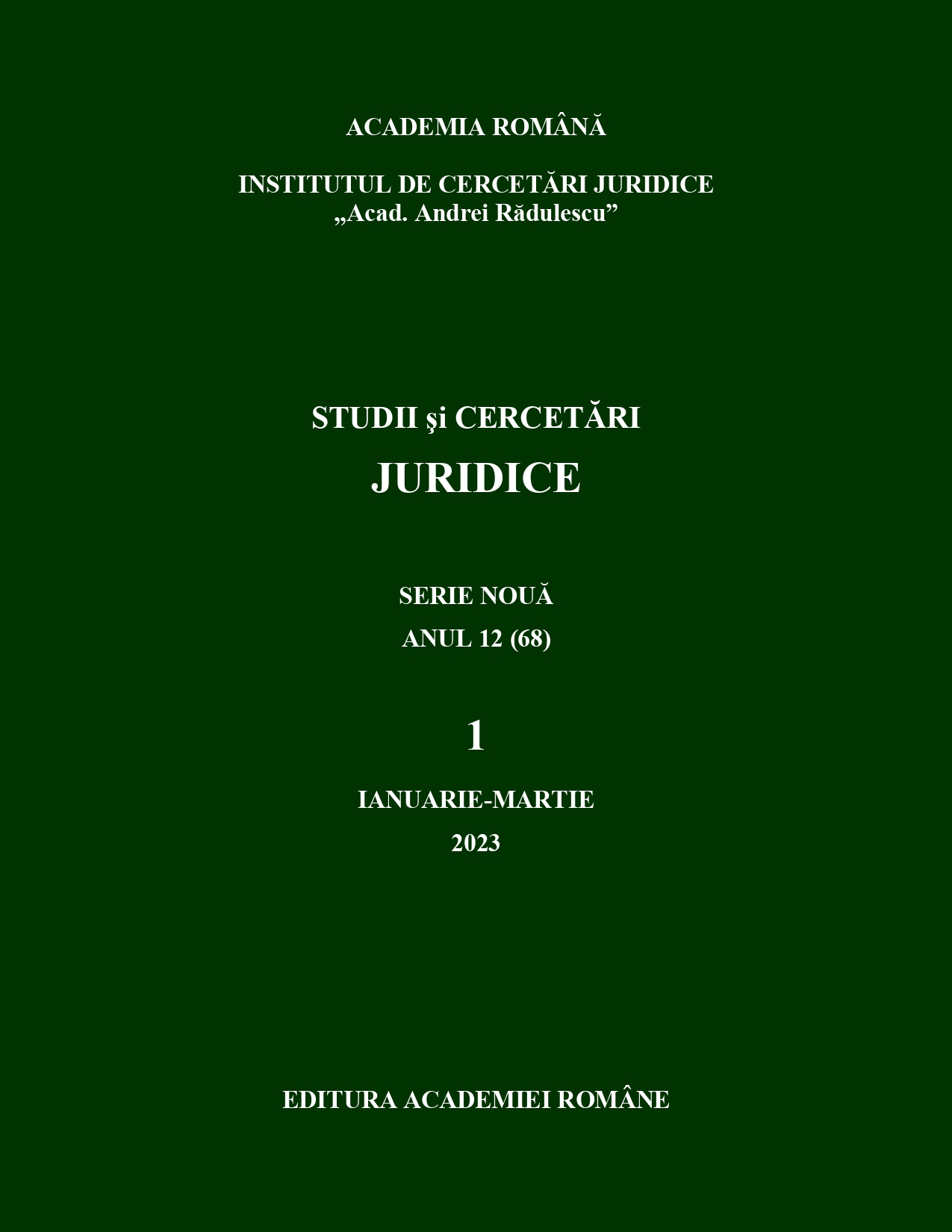Constituția din 1923: un punct culminant al afirmării constituționalismului în România
The Constitution of 1923: a Culminating Point of the Affirmation of Constitutionalism in Romania
Author(s): Mircea DutuSubject(s): Law, Constitution, Jurisprudence, Constitutional Law, Political history, Government/Political systems, Interwar Period (1920 - 1939), Period(s) of Nation Building
Published by: Editura Academiei Române
Keywords: Constitution of 1923; constitutional centenarian anniversary; legal culture; national unitary state; constitutional tradition; constitutional control of laws; constitutional democracy; ...
Summary/Abstract: The Constitution of March 29, 1923, represented, at the same time, a culmination of a process, which became century-old, of the affirmation of constitutionalism in Romania (started with the project of the "constitution of the cărvunari" from 1822 in Moldova) and one of foreshadowing its evolution in the following century, of which we are now taking into consideration. Beyond the actual legal text, the drafting and adoption of the centenary fundamental law represented a true "constitutional moment" with multiple consequences for the legal development of the country. Its preparation meant extensive public debates, the cycle of lectures on priority themes of the social and state organization held by the Romanian Social Institute (December 1921–June 1922), the four drafts representing the visions of the historical regions, the involvement of the political and intellectual personalities of the time. In terms of content, the innovations brought to the old text were relatively numerous, but they did not affect its previous vision and structuring bases. Among them, the addition of "national and unitary" to the state's characteristics, the consecration of judicial control of the constitutionality of laws, the state's ownership of underground resources, the creation of the Legislative Council, the recognition and guarantee of equal rights for national minorities, etc. should be noted. On the respective updated constitutional bases, the administrative, judicial, legislative unification of the regime of legal professions and higher legal education went on, and in this general context, the Romanian legal culture was established as one of a European synthesis with strong original accents. The new institutional framework favored the legislative and administrative unification, as well as the unified socio-economic development of the reunited country. At the same time, this is how we reached the crystallization of a tradition, generating constants that are manifested today as components of the Romanian constitutional identity and the affirmation of the Romanian legal culture as one of European synthesis. The debates, the analysis carried out and all the published works have created the foundations of the Romanian doctrine of public law.
Journal: Studii și Cercetări Juridice – Serie Nouă
- Issue Year: 2023
- Issue No: 1
- Page Range: 7-58
- Page Count: 52
- Language: Romanian

